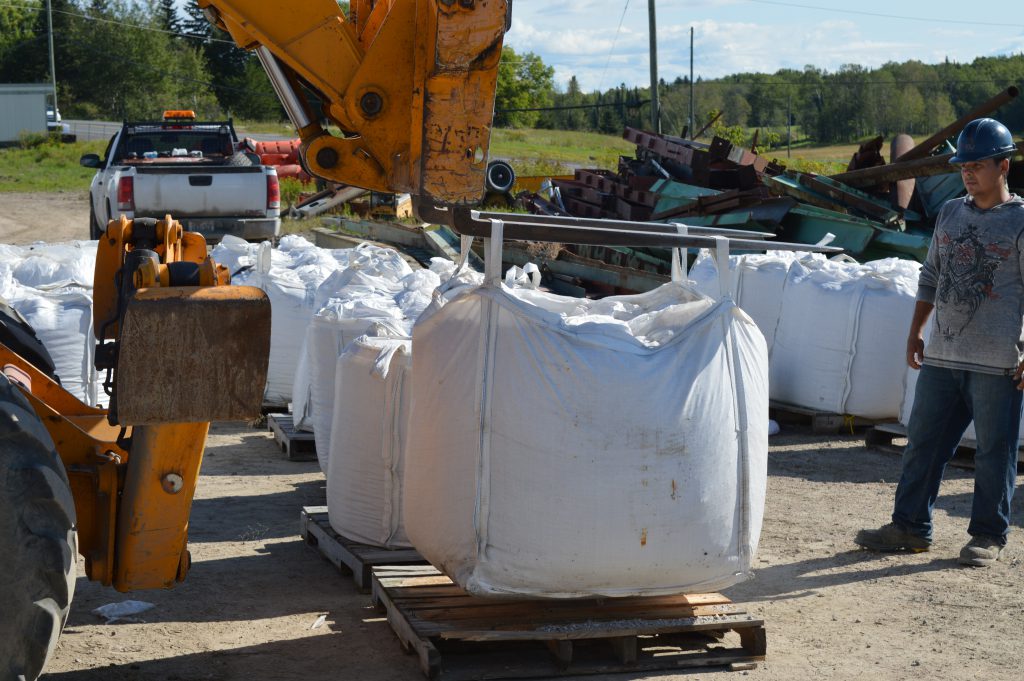Avalon mulls Ontario lithium processing facility

Avalon Advanced Materials Inc. [AVL-TSX; AVLNF-OTC] on Wednesday October 7 said it is investigating collaborative opportunities to establish a lithium processing facility in northwestern Ontario. The move comes after Ontario Premier Doug Ford recently revealed Ontario’s interest in establishing new battery materials supply chains in the province,
The facility being planned would produce lithium hydroxide, and would also accept concentrates from other producers of lithium minerals from the many pegmatic deposits that occur in northern Ontario, Avalon said.
Plans for a lithium processing facility are contained in an update released Wednesday on Avalon’s Separation Rapids Lithium Project near Kenora, northwestern Ontario.
The Separation Rapids deposit is one of the largest “complex-type” lithium-cesium-tantalum pegmatite deposits in the world. It is unusual in its enrichment in the rare, high purity lithium mineral petalite.
As of November, 2017, the project is estimated to contain a measured and indicated resource of 8.12 million tonnes, grading 1.37% Li2O and 0.360% Rb2O (rubidium). That material is located in two zones. That material could support annual production of 71,500 tonnes of petalite concentrate, 11,800 tonnes of lepidolite and later 100,000 tonnes of feldspar.
Petalite is the preferred mineral feedstock for certain glass-ceramic products for technical reasons, notably its low impurity levels. Lepidolite is a lithium mineral which can be converted to lithium carbonate.
The company said metallurgical test work has been progressing on several fronts with the overall objectives of reducing costs, improving recoveries and optimizing lithium product quality.
Avalon also said it continues to look at the market opportunities to serve both the glass-ceramics market with its lithium mineral (petalite) product and the lithium battery materials market with its high purity lithium hydroxide product.
The company said Separation Rapids has the potential to produce high purity lithium compounds at a relatively low cost for two distinct markets:
An industrial mineral product for glass ceramics and lithium chemicals for energy storage.
It also has the potential for several by-products, including feldspars, silica, rubidium, cesium, and tantalum.
In its 2016 PEA, Avalon developed a proprietary process flowsheet to produce a high purity lithium hydroxide product from petalite for the lithium battery material market. The flowsheet has the advantage of generating limited waste by the recycling of sulphuric acid solvent.
To further optimize the flowsheet, Avalon shipped a 50-kilogram sample of petalite concentrate to XPS (Expert Press Solutions) in Sudbury, Ontario to generate a leach solution for use in optimizing the final stages of the process, which involves the use of electrolysis to produce lithium hydroxide.
In June, the company said it received the necessary approvals to proceed with a 2,500-tonne bulk sample extraction program originally planned for 2019. But the program was delayed by the COVID-19 lockdown and Avalon said it now intends to proceed with additional bulk sampling work later this year after freeze-up.
Avalon shares advanced on the news, rising 6.7% or $0.005 to $0.08. The shares are trading in a 52-week range of 10 cents and $0.025.
